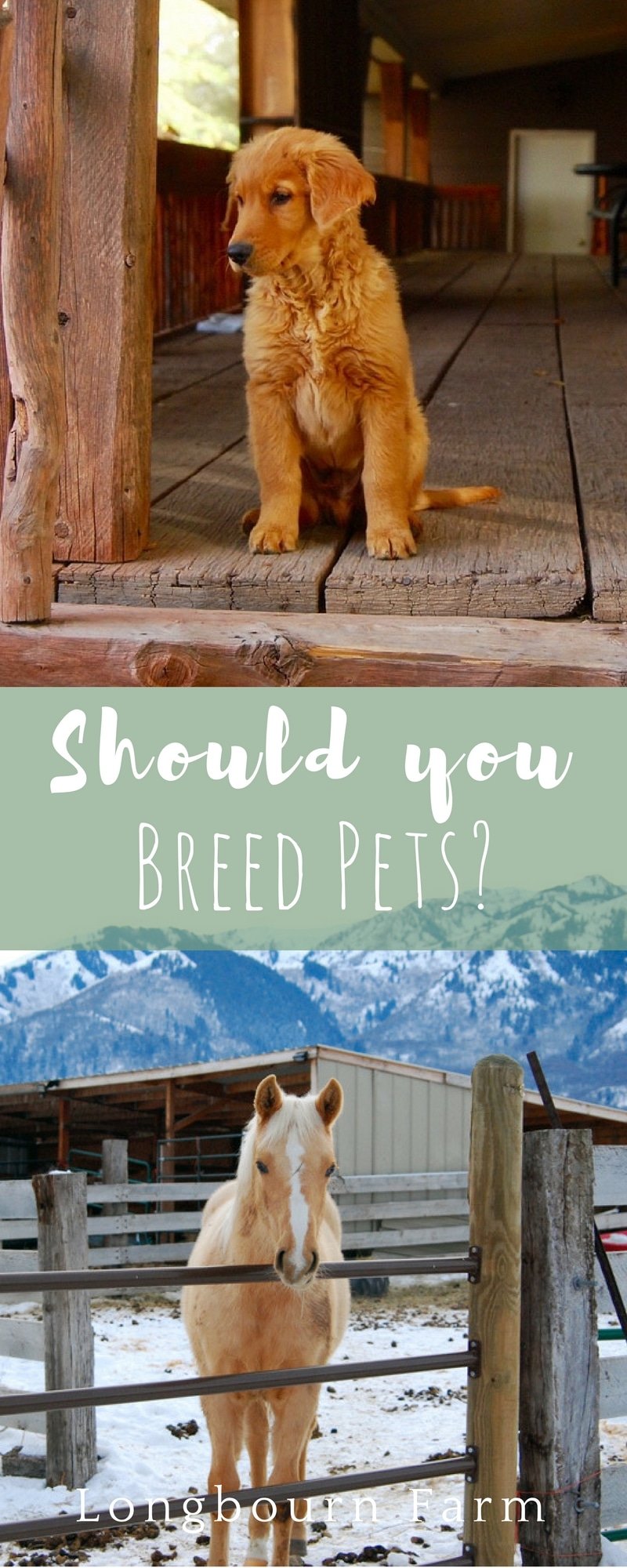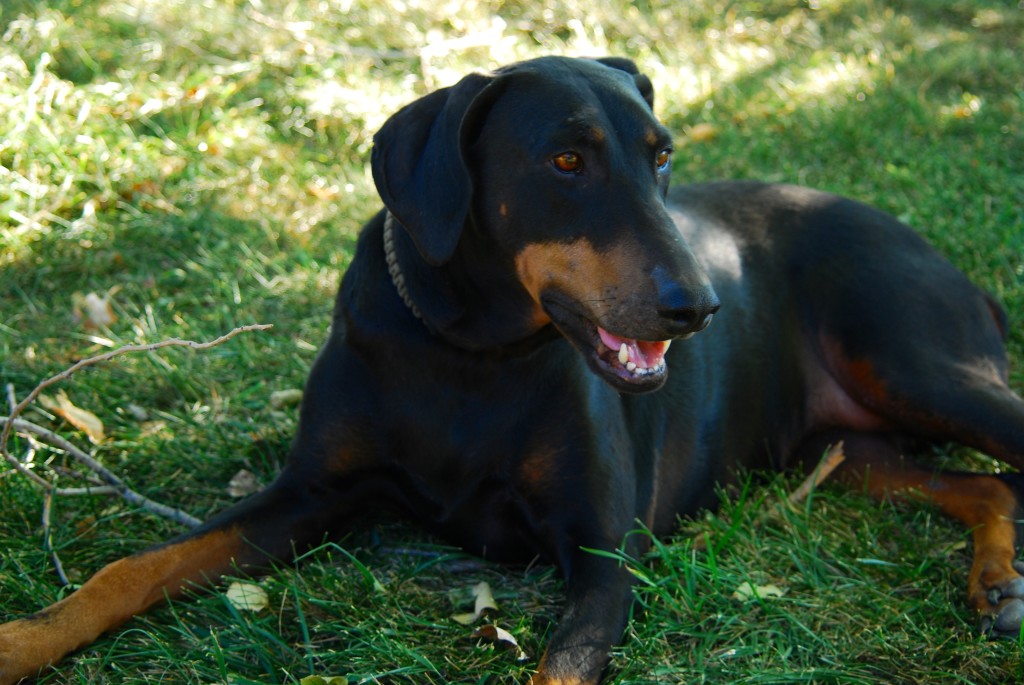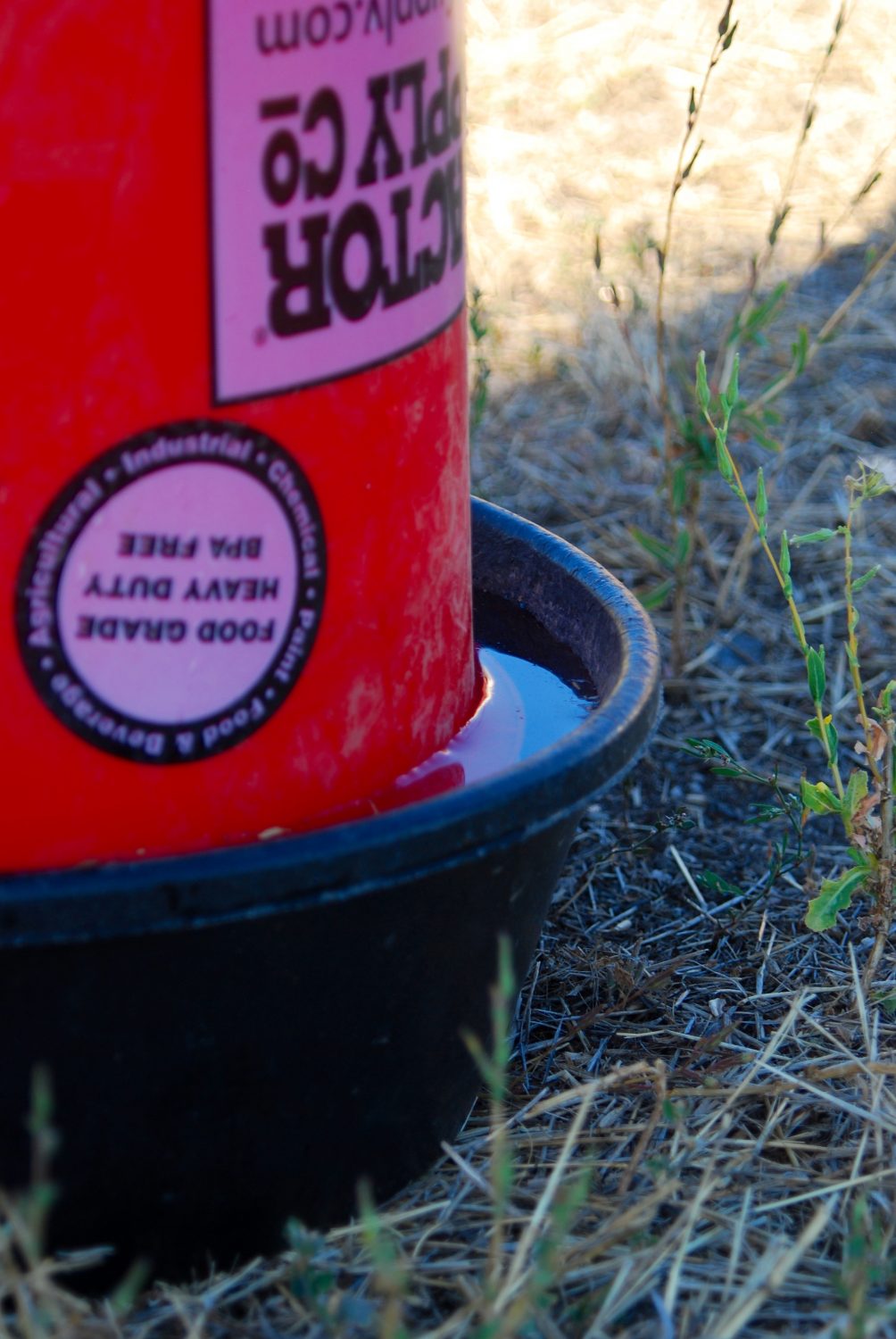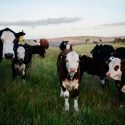A good starting resource if you are considering breeding pets. Short run-down on genetics and the important things you should consider to be a good breeder.
I frequently get asked if I breed my animals.
Will you ever let your dog have puppies? {she is spayed}
Do your cats have kittens? {they are all boys…and neutered}
Are you going to hatch chicks? {no rooster}
Most of the time, my answer is no. Not because I hate baby animals {only someone with serious problems hates baby anything!} and not because I think breeding animals is inherently wrong. The reason I don’t want to breed my animals is because I think breeding is really serious business and I don’t want to dedicate the time and money it would require.
How is breeding serious? Don’t you just let your animals have at it and wait a little while?
Well, not exactly. Let’s delve into the science behind breeding just a little bit {and I really mean a little, there is seriously so much to know} and focus on pets for today. Pets and livestock are very different in a lot of ways and breeding is no exception.
Here are some handy definitions (greatly simplified) that will make this a little easier as we go along:
- Dominant: A gene that outweighs other genes when talking about a certain trait. Example: Black color vs. White color. Black is dominant and will outweigh the white genes.
- Recessive: A gene that is passive to a dominant gene. Example: If an animal has a gene for white and a gene for black, the animal will be black because the white gene is recessive. You must have two recessive traits for the white color to appear.
- Trait: eye color, coat color, temperament, etc.
 It’s all about the genes.
It’s all about the genes.
You have a beautiful doberman named Poppy. She is really sweet so you decide it would be a great idea to breed her and get some puppies you could sell and make some money. Great idea, right? Wrong. You have no information about her parents and therefore no information about her health, conformation, temperament, or disease history. Breeding her would be like using salt instead of sugar in a cookie recipe. The cookies would look great but they really just wouldn’t be good cookies. Traits from parent animals get passed on to offspring. Breeding two dogs with the same problem usually ensures the offspring will have that issue. Dogs (or any pet) of the same breed are often very similar genetically. This means that they often have distinct health issues that are very easily passed on from parents to offspring {easier for two recessive traits to hook up}. Quality breeders ensure both parents health histories are known and good. Just think of those societies where people marry their family members, it leads to things like extra digits, dwarfism, etc.
You can pick but you can’t choose.
Another important aspect of breeding is understanding trait selection. When you select for one trait {coat color}, 99% of the time you will be inadvertently selecting for some other traits {eye color, blindness, height, hip displaysia}. That isn’t always bad but it can be if you don’t understand the traits you are selecting for. Traits are hardly ever individual. They are almost always connected to other traits. This is where records and researching your breed of choice becomes super duper important.
Hybrid vigor. What’s that?
A term that gets used a lot in genetics is hybrid vigor. This means that two animals who are randomly selected and unrelated are bred and their offspring are more thrifty, lively, and healthy than purebred animals. Why? Because all those weird recessive health problems you turn up when breeding the same breed together get trumped by dominant, healthy traits. Now, I italicized the words random and unrelated for a reason. You can’t achieve hybrid vigor with distant cousins. Or half siblings. It truly has to be a “mutt”. So what if you make a great mutt, want to start your own breed because they are so awesome and start breeding them together? You will loose the hybrid vigor. And this could also be dangerous because there isn’t any history on your new “breed.”
Breed characteristics.
The thing that makes specific breeds of any animal so great is their distinct characteristics. Sheep dogs herd, draft horses pull, ponies buck children off {kidding…}, dobermans protect, and sorry I don’t know anything about cats :). It is essential to thoroughly research the breed you want to pursue to make sure you are maintaining breed characteristics. That is why I love pure bred animals – their different and distinct characteristics. There are enough unspecific animals in the world that need homes, if you aren’t going to breed correctly, don’t breed at all. A personal opinion note about dogs: Most of the time, the dog of your dreams is waiting for you at your local shelter! Most people don’t need a dog with really specific breed characteristics. Quite honestly, sometimes breed characteristics end up being a huge problem for unexperienced dog owners! Instead of focusing on breed, visit your local shelter with temperament in mind and pick out a calm, submissive dog and it will definitely be the dog you always wanted!
So, how do I know if I bought a quality animal?
Generally, an animal that is coming from a reputable breeder is going to be expensive. That isn’t always the case and will vary breed to breed but most of the time they will be pricey. {Like think the appliance section prices at the hardware store {$500-$2000), not the giant rug section prices at the hardware store {$50-$250}. Reputable breeders will also know their animals health histories and have accurate, up to date health records. They should also be aware of common health problems in their breed and be able to discuss them with you. Their animals should be clean and the environment where they are kept should also be clean and safe. And my personal opinion, they should have well behaved and trained animals and understand the importance of exercise. If you want to fall under the “reputable breeder” category, get busy.
I think there are many individuals who do a wonderful job breeding quality pets. And I don’t feel the need to contribute. So no, I won’t ever be breeding my pets.
I focused on dogs here but this applies to any pet you may be considering breeding. This is not meant to be comprehensive in any way, do your own {good} research and feel free to ask me if you have questions! Find a local breeder in your area with a good reputation to help you get into it if you don’t have the educational background yourself.
Pin this farm tip on your Hobby Farming board to SAVE it for later! Follow Longbourn Farm on Pinterest for more great tips, ideas, and tutorials!
[et_bloom_inline optin_id=”optin_4″]











Leave a Reply